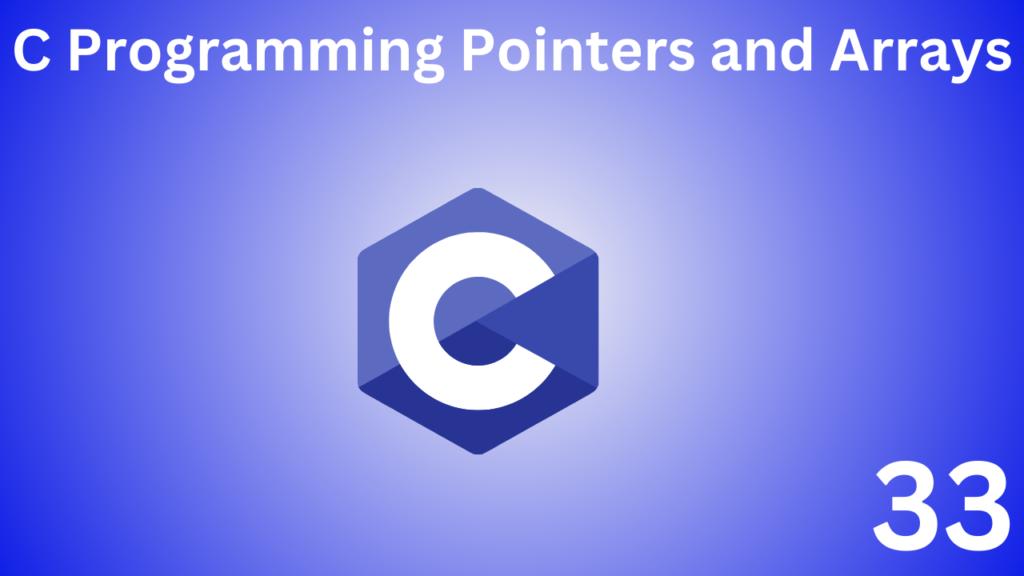
In this chapter you will learn about the relationship between array and pointer and you will learn how to use them properly in your program.
Table of Contents
C Programming Pointers and Arrays
#include <stdio.h>
int main()
{
char charArr[4];
int i;
for(i = 0; i < 4; ++i)
{
printf("Address of charArr[%d] = %u\n", i, &charArr[i]);
}
return 0;
}
output
Address of charArr[0] = 28ff44
Address of charArr[1] = 28ff45
Address of charArr[2] = 28ff46
Address of charArr[3] = 28ff47
Note: You can get different address of array.
If you look at the result of the above example, you will see that the difference between the two elements of the charArr array is equal. That is, their difference is 1 byte.
But since a pointer points to the location of another variable, it can store any address.
Relationship between Array and Pointer in C Programming
Consider an array like the following:
int arr[4];
In C programming, the array name always refers to the address of the first element of the array.
In the above program both arr and &arr[0] point to the address of the first element.
&arr[0] is usually equal to arr
Since both have the same address, the values of arr and &arr[0] are also the same.
arr[0] is usually equal to *arr(pointer address value).
Similarly,
&arr[1] is usually equal to (arr + 1) and arr[1] is usually equal to *(arr + 1).
&arr[2] is usually equal to (arr + 2) and arr[2] is usually equal to *(arr + 2).
&arr[3] is usually equal to (arr + 1) and arr[3] is usually equal to *(arr + 3).
.
.
&arr[i] is usually equal to (arr + i) and arr[i] is usually equal to *(arr +
In C programming you can declare an array and change the data of this array using pointers.
Example: Program to find sum of 5 integers using Array and Pointer.
#include <stdio.h>
int main()
{
int i, classes[5], sum = 0;
printf("Enter 5 numbers:\n");
for(i = 0; i < 5; ++i)
{
// (classes + i) is usually equal to &classes[i].
scanf("%d",(classes + i));
// *(classes + i) is usually equal to classes[i].
sum += *(classes + i);
}
printf("Sum = %d", sum);
return 0;
}
output
Enter 5 numbers:
5
4
10
5
7
Sum = 31




